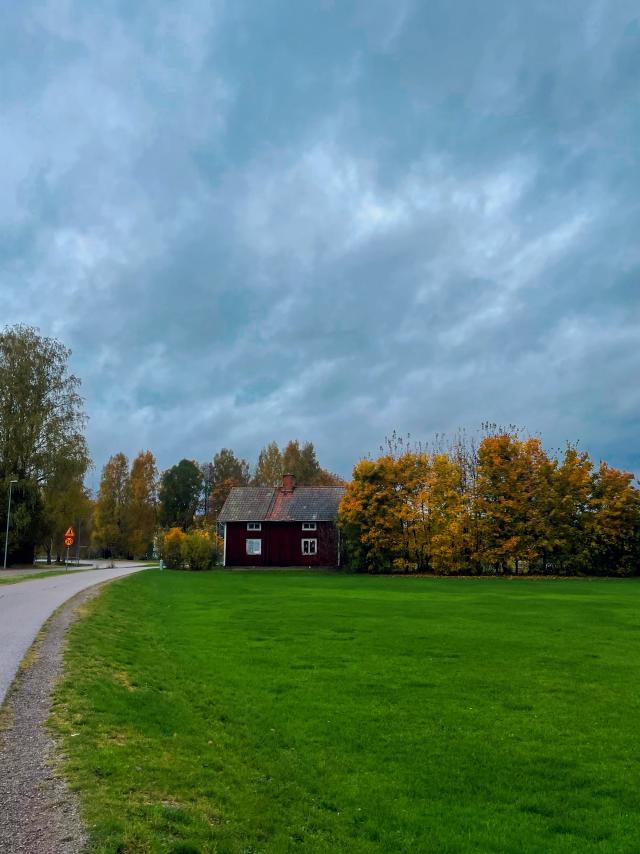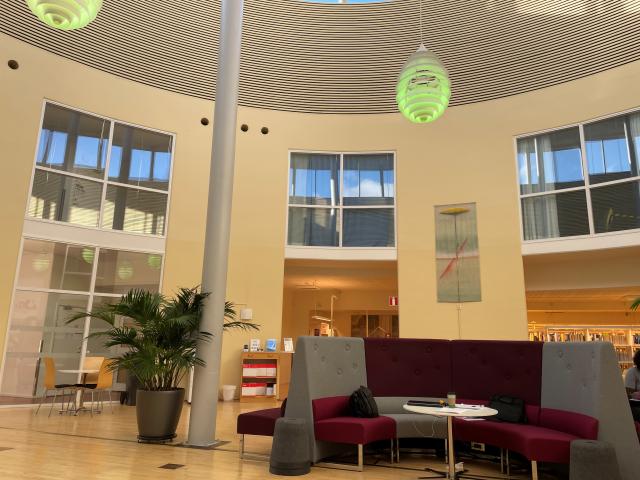Date:2021-11-20 Click:
Since arriving at Arlanda Airport on October 1, I have lived abroad for more than a month. When we first got off the plane, it was raining lightly. The weather here was not as cold as we imagined. Although the air was foggy, it was unexpectedly fresh and clean.

In the first month, we spent almost half of our time struggling with food. Because of the high latitude, many fruits and vegetables cannot be grown in Sweden but imported from other countries, therefore are very expensive. The first time I went to Willys (a Swedish supermarket), I was scared by the price of tomatoes, SEK 40 (1 Swedish kronor is approximately equal to 0.74 RMB) per kilogram. I even began to think of eating potatoes every day (potatoes are abundant here and therefore are the cheapest). As time passed by, we went to the supermarket more often and found more tips on various overseas study apps; I gradually learned some ways to save money. For example, you can buy avocados for two at a discounted price SEK 10 in supermarkets; when cooking, you can use frozen vegetables instead of fresh vegetables. As we became more familiar with local diet and cooking skills, we gradually adapted to life in Sweden.

Except for a few JUFERs of “3+1 projects”, the students in the class are basically Swedish locals. Since Sweden encourages people of all ages to go to university for further studies, most of our classmates have several years of work experience, and some were even leaders before. In the group work, my group members all have rich work experience, who gave me a lot of support.
For us who come from the southern part of China, the cold in Sweden is still a bit difficult to adapt. The biggest disadvantage of Sweden is that winter nights are too long. Almost since November, it is completely bright at nearly eight o'clock every day, and turns dark at three o'clock in the afternoon. Long-term lack of sunlight is the main cause for depression. Therefore, it is still necessary to keep a bottle of vitamin D3.
After-school life in Sweden is dominated by parties. There are regular student gatherings every Thursday, as well as special holiday parties held on certain festivals (such as Halloween). I met many international exchange students at the party, and talking with them made me feel the wonder of cultural integration. Compared to parties, I prefer FIKA, one of the first words people will pick when they come into contact with Swedish. Its frequency of use is second only to Tack (Thank you) and Hej (Hello). Rather than saying that FIKA is afternoon tea, it is better to interpret it as a small get-together at any time and place, whether it is morning or evening, whether at home, at work or in a cafe, or whether be with colleagues, family, friends, or whoever you want to know. Here, my friends and I often grab a cup of coffee and a cinnamon bun to enjoy the leisurely FIKA time.